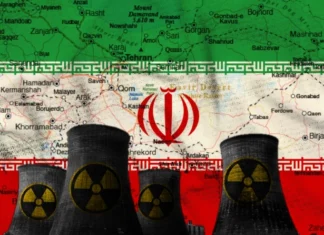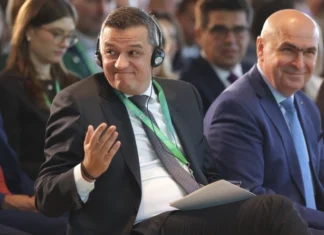CSAT Meeting: Key Topics on the Agenda
The Supreme Council of National Defense (CSAT) is convening for an important session that will address several critical matters concerning Romania’s defense and military strategy. Among the primary topics of discussion is Romania’s involvement in the European Response Plan, known as "Readiness 2030." This initiative aims to streamline and enhance military readiness among EU member states, ensuring a cohesive and effective response to potential threats.
The "Readiness 2030" initiative is pivotal as it focuses on improving interoperability between EU forces, thereby fortifying collective security and defense capabilities within the union. Romania’s participation signifies its commitment to regional and European security, aligning with NATO objectives and contributing to a unified approach to defense challenges.
In addition to the European Response Plan, the meeting will review the draft of the national defense legislation of Romania. This proposed law is essential for updating and reforming the country’s defense policies and structures. It aims to enhance Romania’s military readiness, adapt to changing security dynamics, and address contemporary threats, thereby ensuring that the armed forces are equipped to meet both national and international obligations.
Another significant agenda item is the National Plan regarding military mobility. This plan seeks to enhance the capability of the Romanian armed forces to deploy quickly and efficiently across borders, thus improving response times during crises. Enhanced military mobility is critical in today’s security landscape, facilitating rapid deployment for joint missions and humanitarian assistance operations when required.
The outcomes of this CSAT meeting will have implications for Romania’s defense posture and strategic alignment within both NATO and the European Union. By actively participating in transnational military initiatives and reforming national defense laws, Romania is positioning itself as a proactive player in regional security affairs.
As part of the broader context, Romania has been increasingly involved in various NATO and EU missions, contributing troops and resources to ensure stability and peace in threatened areas. The discussions during this CSAT meeting are expected to reinforce Romania’s role in international defense initiatives, thus enhancing both its security and that of its allies.
Furthermore, the meeting emphasizes not only military preparedness but also the importance of legislative frameworks that support defense policies. The draft law under consideration will shape the future of the Romanian military, ensuring it is capable of addressing both traditional and emerging threats.
In summary, the CSAT meeting represents a crucial moment for Romania’s national defense strategy. With significant items on the agenda like the “Readiness 2030” initiative, the new defense legislation, and plans for military mobility, the discussions will undoubtedly set the course for Romania’s future military engagement and cooperation within broader European security frameworks. The outcomes will be vital for enhancing the country’s defensive capabilities, aligning them more closely with NATO standards, and ensuring that Romania remains an active and effective contributor to regional peace and security efforts. These initiatives not only address immediate security needs but also foster long-term stability in an increasingly volatile geopolitical landscape.






